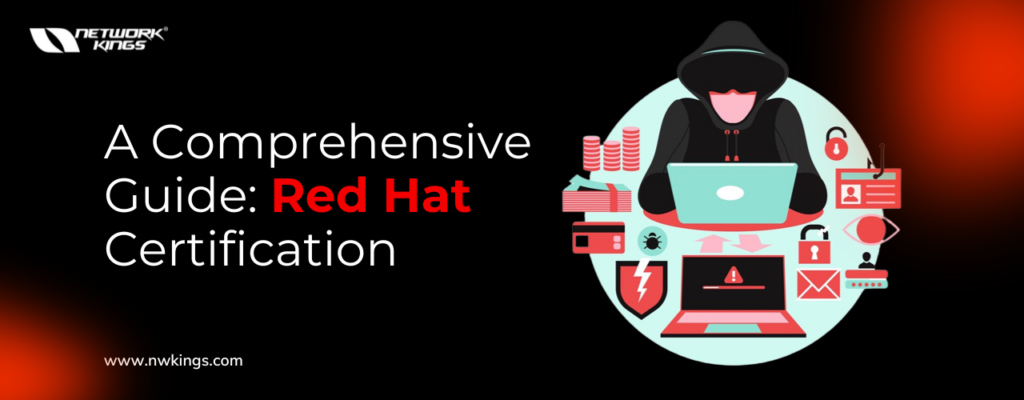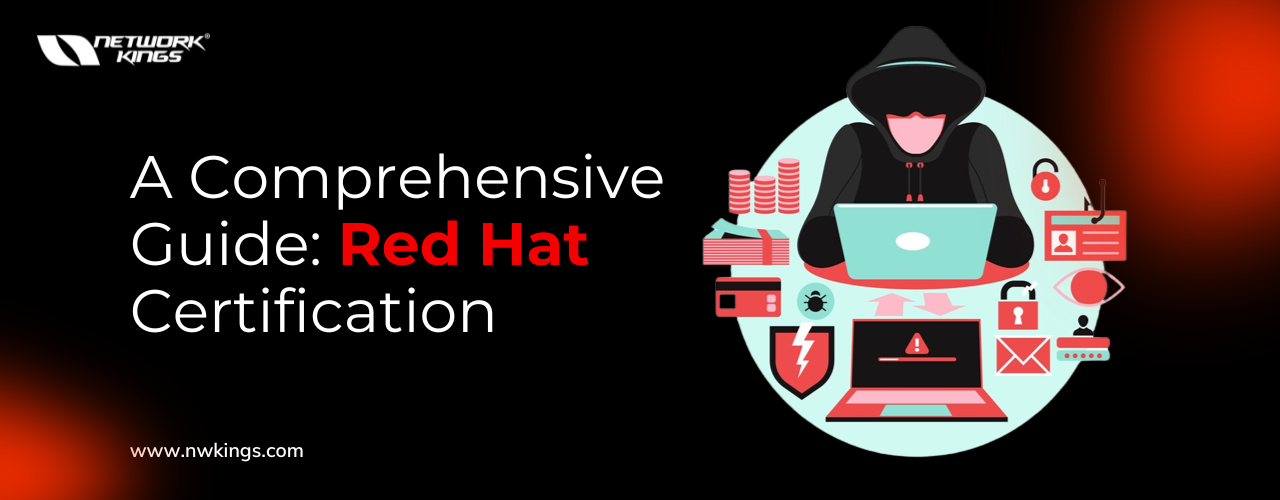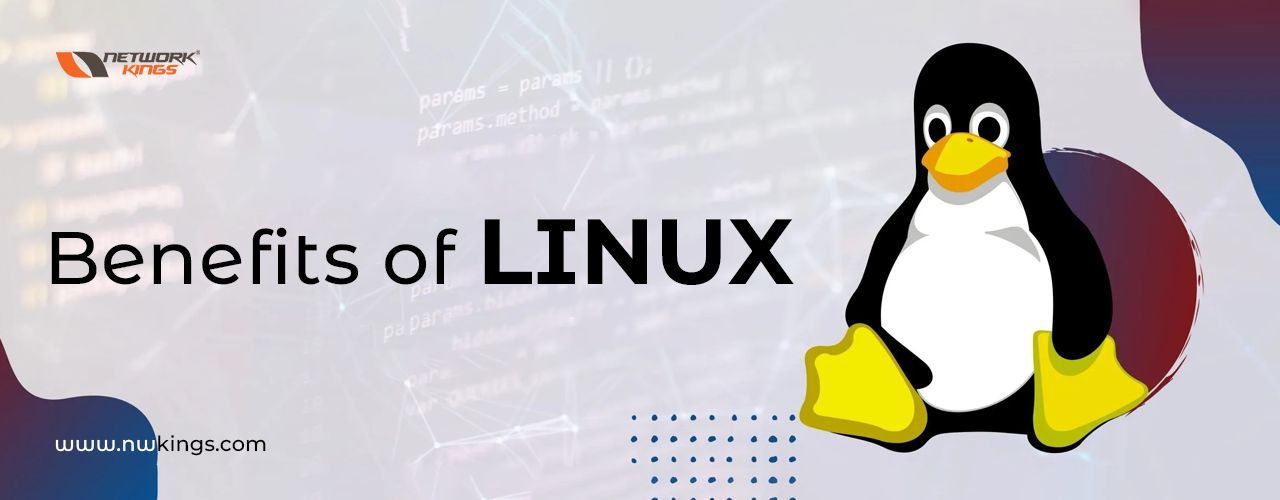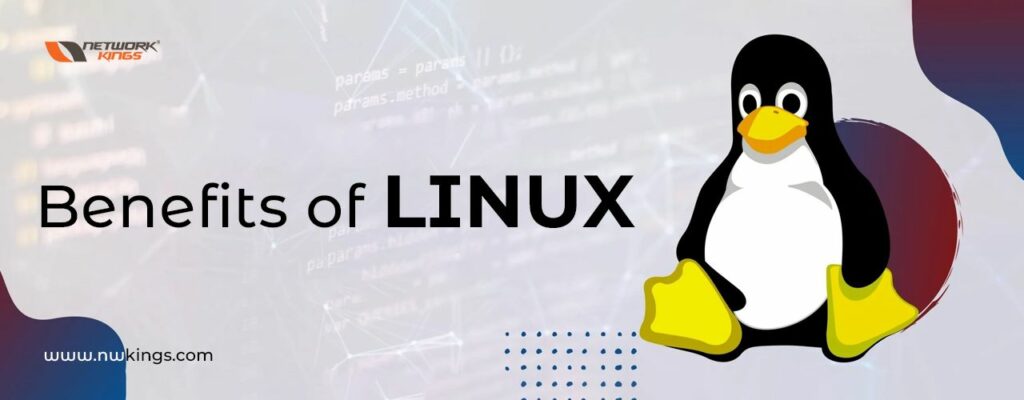
Are you Looking for the best Red Hat Certification courses? In the rapidly evolving world of technology, staying ahead of the curve is essential for professionals seeking to advance their careers. One way to demonstrate expertise and proficiency in open-source technology is through Red Hat Certification.
This blog post will provide an in-depth overview of Red Hat Certification, including its benefits, cost, courses, eligibility, and more. Whether you’re a seasoned IT professional or a newbie looking to break into the industry, this guide will help you understand the value of Red Hat Certification and how it can propel your career forward
What is Red Hat Certification?
Red Hat Certification is a globally recognized credential that validates an individual’s skills and knowledge in using Red Hat technologies. Founded in 1993, Red Hat is a leading provider of enterprise open-source solutions, offering a wide range of products and services that enable businesses to harness the power of open-source software.
What are the Benefits of Red Hat Certification?
Here are the benefits that you can consider while taking the Red Hat Certification Courses.
Career Advancement Opportunities
Red Hat Certification opens doors to plenty of career advancement opportunities. As an industry-standard certification, the Red Hat course demonstrates your proficiency in Red Hat technologies, making you an attractive candidate for job roles such as system administrators, developers, engineers, and architects.
Enhanced Credibility
Having a Red Hat Certification adds credibility to your resume and distinguishes you from your peers. Employers value certified professionals who possess the skills and knowledge to effectively utilize Red Hat technologies in real-world scenarios.
Expanded Knowledge Base
Preparing for the certification exams necessitates a comprehensive understanding of Red Hat technologies. As you study for the exams, you’ll acquire valuable knowledge and practical skills that will enhance your ability to solve complex problems and optimize IT infrastructure.
Access to the Red Hat Community
Red Hat Certification grants you access to an extensive community of certified professionals, where you can network, collaborate, and gain insights from experts in the field. This vibrant community serves as a valuable resource for continuous learning and professional growth.
Most Popular Red Hat Certification Courses - All You Need to Know
Red Hat offers a wide range of certification courses designed to cater to various skill levels and areas of expertise. Here are some of the popular Red Hat certification courses:
Red Hat Certified System Administrator (RHCSA)
The RHCSA certification is an entry-level certification that validates your ability to perform essential system administration tasks, including file management, user administration, package management, and network configuration. This certification serves as a foundation for more advanced certifications.
Red Hat Certified Engineer (RHCE)
The RHCE certification builds upon the RHCSA certification and focuses on advanced system administration skills. It validates your ability to configure networking services, manage storage, implement security measures, and perform advanced troubleshooting in a Red Hat Enterprise Linux environment.
Red Hat Certified Architect (RHCA)
The RHCA certification is the pinnacle of Red Hat certifications and is designed for seasoned professionals who possess in-depth knowledge and expertise across multiple Red Hat technologies. It offers specializations in areas such as DevOps, cloud computing, virtualization, and more.
Red Hat Certified JBoss Developer (RHCJD)
The RHCJD certification is specifically tailored for developers who work with JBoss Enterprise Middleware. It validates your ability to develop, deploy, and maintain applications using JBoss technologies.
What skills will you learn in the Red Hat Certification Training?
In Red Hat certification courses, you can learn a variety of skills depending on the specific course you choose. Some common skills that you can learn in Red Hat certification training include:
- Linux system administration
- Red Hat Enterprise Linux (RHEL) installation and configuration
- System security and troubleshooting
- Network management and configuration
- Virtualization and containerization technologies (such as Docker and Kubernetes)
- Automation and scripting using tools like Ansible
- Cloud computing with Red Hat OpenStack and Red Hat OpenShift
- High availability and clustering
- Performance tuning and optimization
NOTE: These are just a few examples of the skills you can gain through Red Hat certification courses. The specific skills will vary depending on the course and level of certification you pursue.
Red Hat Certification Courses: Cost, Eligibility, and Validity
How much does Red Hat Certification Cost?
The cost of obtaining a Red Hat Certification is INR 16,500/- plus GST. The cost of Red hat certification varies depending on the level and specific certification you choose. While exact pricing may change over time, it’s important to budget for examination fees, training materials, and any additional resources such as practice exams.
Red Hat Certification Eligibility
Red Hat certifications do not have strict prerequisites; however, certain certifications require previous certifications as a foundation. For example, to pursue the RHCE certification, you must first obtain the RHCSA certification.
Red Hat Certification Validity
Red Hat Certifications are valid for three years from the date of issuance. To maintain your certification status beyond this period, you can either retake the current version of the exam or earn a higher-level certification.
Where can you Prepare for the Red Hat Certification Exam?
You can enroll for online Red Hat certification training at Network Kings to prepare for the Red Hat exam. Network Kings is an online training platform that offers various IT certification courses, including Red Hat certifications. They provide comprehensive training materials, live instructor-led classes, and hands-on labs to help you gain the necessary skills and knowledge required for Red Hat certification exams.
What are the Benefits of taking Red Hat Certification training from Network Kings?
- Enhanced Job Opportunities: Red Hat Certification courses from Network Kings can significantly enhance your job opportunities in the IT industry and Defense, IB (Intelligence Bureau), and public security services. Red Hat certifications are widely recognized and respected by employers, making you a valuable asset in the job market.
- Industry-Recognized Credentials: Red Hat certifications are industry-recognized credentials that validate your knowledge and skills in using Red Hat technologies. These certifications demonstrate your expertise in areas such as system administration, virtualization, cloud computing, and more.
- Practical Hands-on Experience: Network Kings’ Red Hat Certification courses provide practical hands-on experience, allowing you to gain real-world skills and experience in working with Red Hat technologies. This practical knowledge is highly valuable in the IT industry.
- Up-to-date Curriculum: Network Kings ensures that their Red Hat Certification courses have an up-to-date curriculum that aligns with the latest industry trends and technologies. This assures that you learn the most relevant and in-demand skills.
- Expert Instructors: Network Kings’ Red Hat Certification courses are taught by expert instructors who have extensive experience in working with Red Hat technologies. Their expertise and proper guidance can definitely enhance your learning experience.
- Networking Opportunities: Taking Red Hat Certification courses from Network Kings provides you with networking opportunities with fellow professionals and experts in the field. These connections can be valuable for future career growth and collaboration.
- Continuous Learning: Red Hat Certification courses from Network Kings promote continuous learning and skill development. The IT industry is constantly evolving, and staying updated with the latest technologies and practices is crucial for career success.
- Professional Recognition: Achieving Red Hat certifications from Network Kings enhances your professional recognition and credibility. It demonstrates your commitment to continuous learning and validates your expertise in using Red Hat technologies.
- Access to Resources: Network Kings provides access to resources such as study materials, practice exams, and online forums, which can support your learning journey and help you prepare for the certification exams.
- Personal Growth: Taking Red Hat Certification courses from Network Kings can contribute to your personal growth by expanding your knowledge, improving your problem-solving skills, and boosting your confidence in working with Red Hat technologies.
How to Get Red Hat Certification?
To obtain a Red Hat Certification, you must pass one or more exams administered by Red Hat. These exams evaluate your practical skills and knowledge in using Red Hat technologies. To prepare for the exams, it is recommended to enroll in official Red Hat training courses or utilize self-study resources such as books, practice exams, and online training.
Is Red Hat Certification Worth It?
Investing time and effort into obtaining a Red Hat Certification can significantly enhance your career prospects in the IT industry. As open-source technology continues to gain prominence, employers value professionals with relevant skills and certifications. The demand for individuals proficient in Red Hat technologies is expected to increase in the coming years, making Red Hat Certification a worthwhile investment. Here are the most significant reasons why learning Red Hat Certification is worth it.
- Red Hat Certification can be worth it depending on your career goals and the industry you work in.
- Red Hat certifications are highly regarded in the IT industry, especially in the field of Linux and open-source technologies.
- Having a Red Hat certification can enhance your credibility and demonstrate your expertise in Red Hat products and solutions.
- It can also increase your job opportunities and earning potential, as many companies value and prefer candidates with Red Hat certifications.
- However, the worth of a certification also depends on your experience, skills, and the specific job market you are targeting.
- Ultimately, it is important to consider your career goals, the relevance of Red Hat certifications to your desired job roles, and the potential return on investment before deciding if it is worth pursuing.
What Job Opportunities are available after obtaining a Red Hat certification?
After obtaining a Red Hat certification, you will have various job opportunities in the field of IT specifically in Linux system administration. Some potential job roles after completing red hat certification training are as follows:
- Linux System Administrator: Responsible for managing, maintaining, and troubleshooting Linux-based systems.
- DevOps Engineer: Works on the development and deployment of software applications, using tools and practices that enhance collaboration between development and operations teams.
- Cloud Engineer: Manages and maintains cloud infrastructure, including server setup, configuration, and monitoring.
- Network Administrator: Focuses on managing and troubleshooting network infrastructure, including network devices, protocols, and security.
- Security Analyst: Responsible for identifying and addressing security vulnerabilities in systems and networks.
- Middleware Administrator: Manages middleware software components that connect various applications and systems.
- Database Administrator: Handles the design, implementation, and maintenance of databases.
These are just a few examples, and there are many other job opportunities available based on your specialization and interests. Keep in mind that Red Hat certifications are highly regarded in the industry, and they can significantly enhance your career prospects.
Conclusion
Red Hat Certification serves as a testament to your expertise in open-source technologies and can significantly boost your career prospects in the IT industry. Whether you’re just starting out or looking to advance to higher-level roles, obtaining a Red Hat Certification demonstrates your commitment to professional growth and continuous learning. With various certifications available and ample resources for preparation, now is the perfect time to embark on your journey toward becoming a certified Red Hat professional.
So, what are you waiting for? Enroll now in the Red Hat certification training




